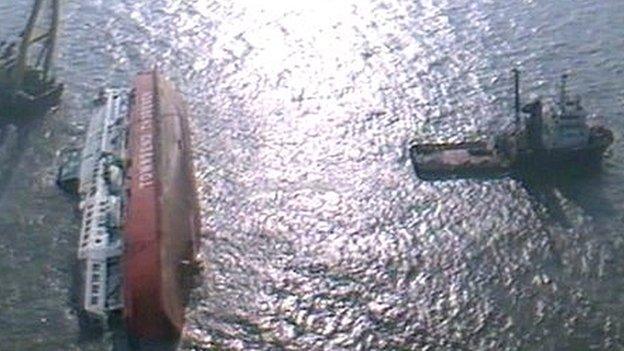Zeebrugge Herald of Free Enterprise disaster remembered
- Published
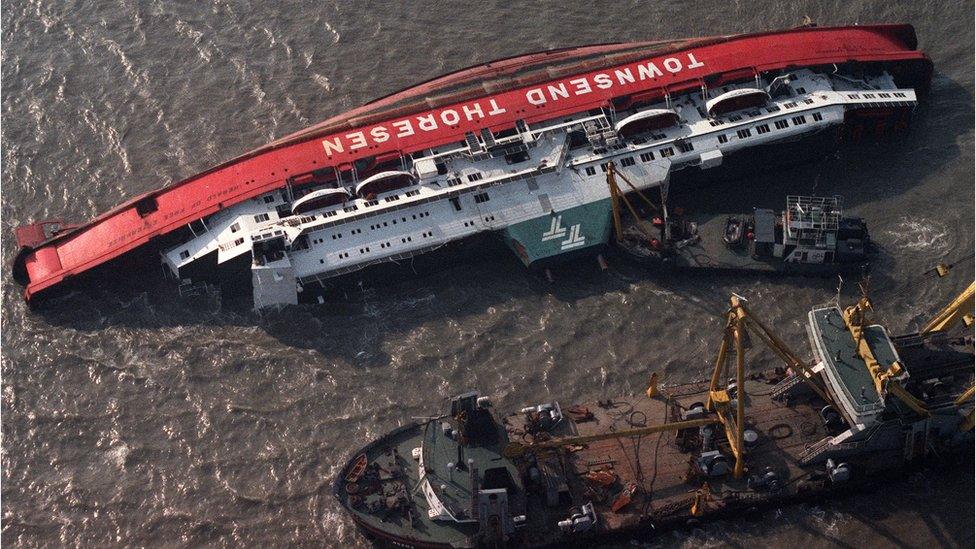
Thirty years ago a ferry left dock in Belgium. Within minutes the ship was in trouble and in just 90 seconds it capsized, killing 193 people. Here is the story of the Herald of Free Enterprise - told by those whose lives were forever affected by the disaster.
Gillian Lashbrooke was one of the first people to know something was wrong. She was 16 years old. Her mother, stepfather and uncle died in the accident while she and her three stepbrothers survived.
"I was outside on the deck when it started, I was looking over the rail into the water," she said. "The water was getting further away, at first I thought I was imagining it.
"The ship just tilted over and I was flung backwards and was knocked unconscious for a little while and - when I came round - I was lying on the seats. But they were in the wrong place because the ship had gone on its side - so the floor was now like a wall.
"I tried to climb up the seating like a ladder but I couldn't. All I wanted to do was get back inside to my mum."
Eventually she jumped into the sea.
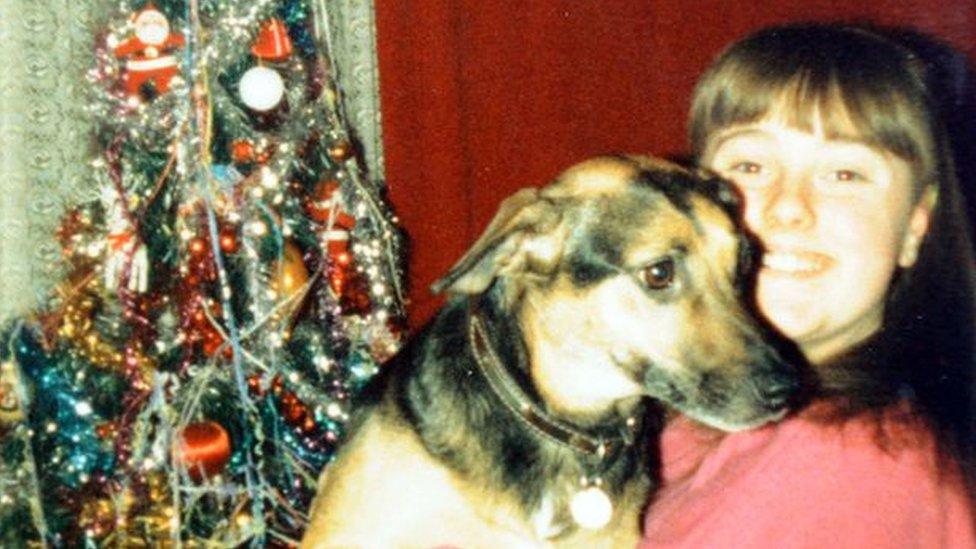
Gillian Lashbrooke pictured at home three months before the disaster
"I was wearing long boots and a denim coat, they were so heavy they were dragging me down. I struggled to take off my boots and coat while I was still trying to swim.
"I thought I'd try to swim back to land. But it was so cold and the waves were so ferocious. I swam back to the boat and managed to hook my skirt on to a thing sticking out from the boat because the waves were dragging me down, and I needed to stay up.
"There was a woman near me, and she was holding a little girl above the water.
"Helicopters were overhead, but they couldn't see us. So I flung myself back into the sea and there was a fishing boat. The woman kept screaming 'don't leave me to die' and I shouted back I would tell rescuers where she was.
"I don't know what happened to the woman or the little girl. I tried to find out and I put out an appeal. I'm fairly sure they both died."
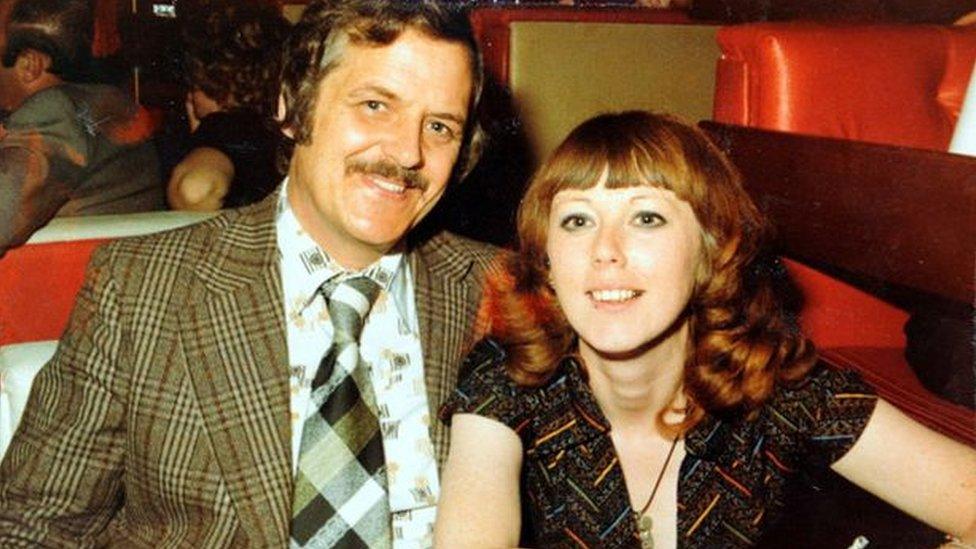
"I couldn't believe I was looking at my mum. I loved her so much and she was dead in front of me."
"People in a fishing boat rescued me. Then I was taken to land and an ambulance took me to hospital.
"That night I became an adult. I washed my clothes out in the sink and put them on a radiator to dry. I prayed for my mum, hoping I was praying for her and not speaking to her."
The following day Ms Lashbrooke and her stepbrothers were told their parents were dead. They were taken to a makeshift mortuary in a gym.
"I saw my dad as soon as I walked in. I saw children dead and laid out. They were children I'd seen alive the evening before. It didn't seem real they were dead.
"Then my brother found my mum. I couldn't believe I was looking at my mum. I loved her so much and she was dead in front of me.
"She wasn't just my mum, she was my best friend. The night before, she'd given me some money just before I went on deck and said 'get something to eat love, and I'll see you in a minute'.
"That minute never came. That was the last time I saw her."
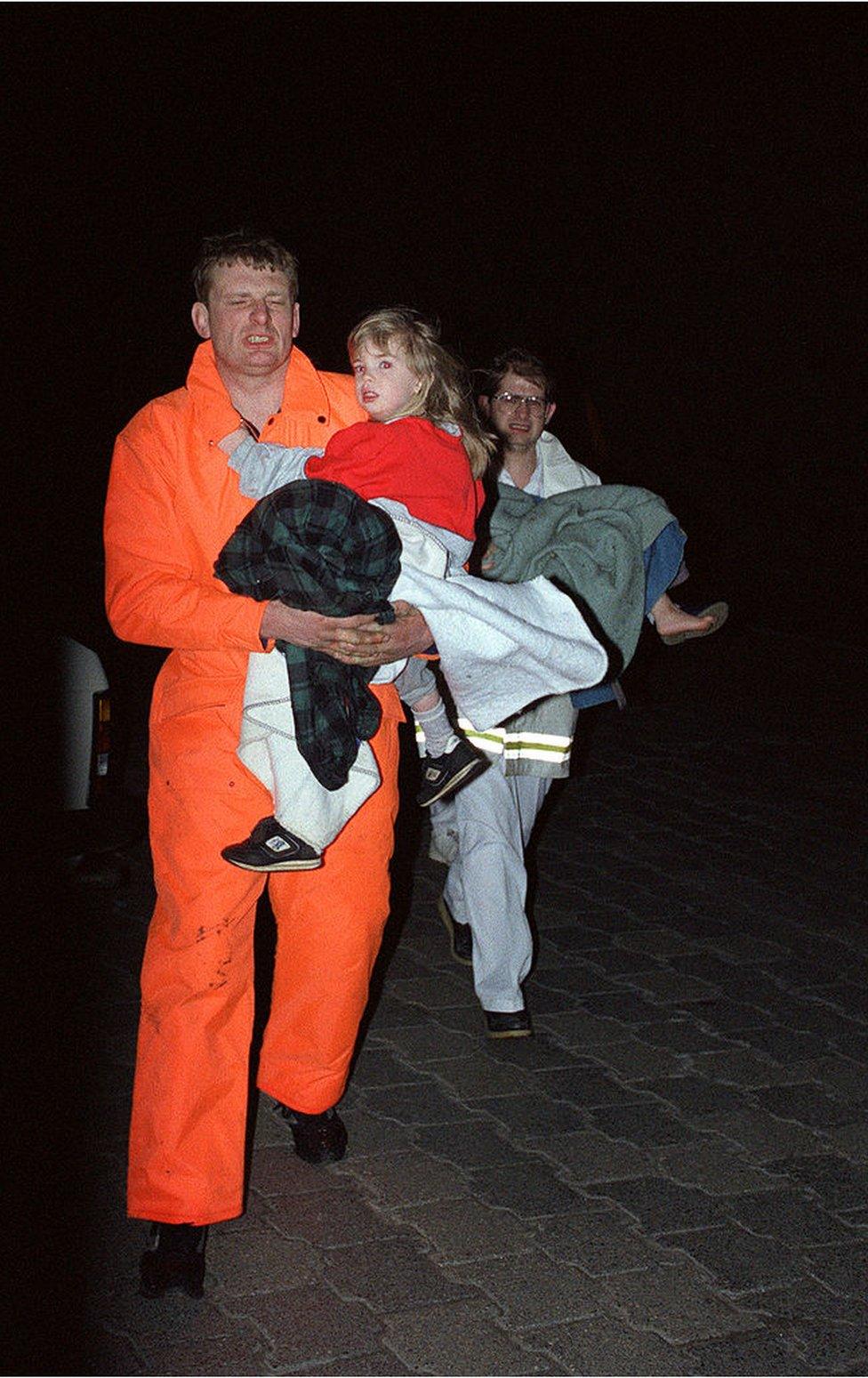
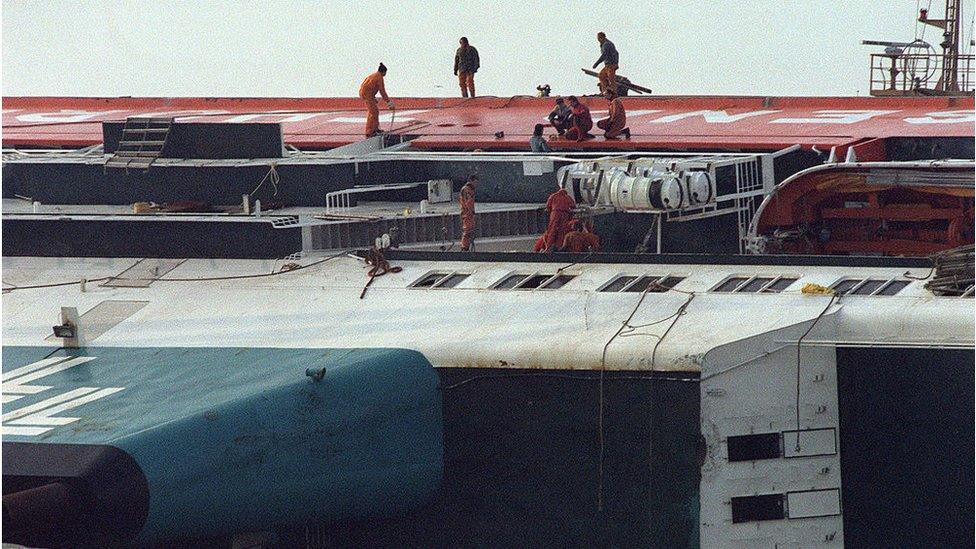
Crew member Henry Graham was working in a kiosk in the drivers' lounge of the stricken ship.
"It all happened in the blink of an eye. I knew the ship wasn't coming back from the roll. Things slid off the tables, water came through the windows. The lights went out. There was so much noise - screaming and crashing, the world went upside down."
He managed to clamber on to the side of the ship and helped a young girl to reach a tugboat. He says his first instinct was to return to the Herald but the tug he was on had already left for shore. He couldn't go back.
"My wife was actually told I was missing presumed dead. But she then saw me on the television news, getting off a bus.
"Afterwards I went on the sick. I wasn't physically injured, it was all mental. My bosses told me I had to go back to work. I lasted two days.
"Then for nine years I didn't go anywhere near the sea. It was a mixture of fear and the memories of everyone we'd lost. But I eventually went back. I worked on the ferries again, and now I'm with the Royal Fleet Auxiliary."

Why did the ship sink?
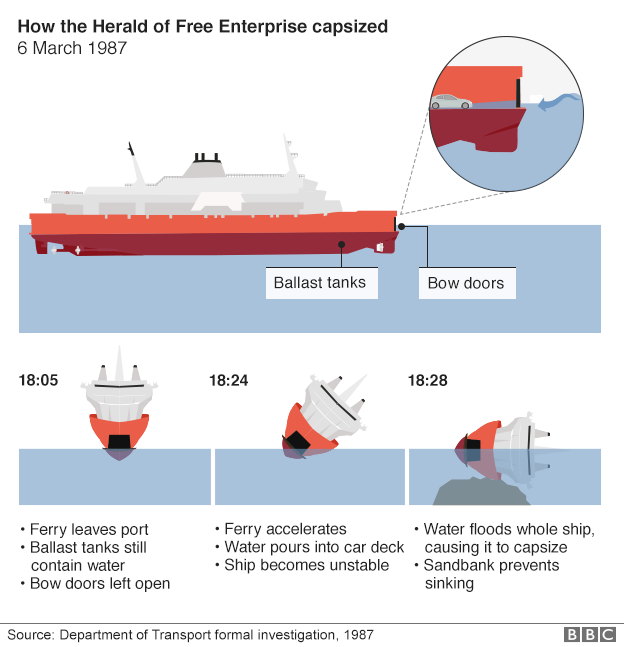
The Herald of Free Enterprise was a roll-on roll-off ferry operating between Dover and Zeebrugge. That afternoon the vessel was at about 40% capacity, mostly carrying passengers from the UK.
It set off without the bow doors being closed and became unstable. Vehicles rolled from port to starboard and back. The ship capsized on to its port side on a sandbank, all its lights out, in just 90 seconds.
There was not enough time to send an SOS signal, nor to lower the lifeboats or deploy life jackets.
In the formal inquiry that followed, blame was placed on assistant boatswain Mark Stanley for not closing the bow doors, external. First officer Leslie Sabel was also blamed for not making sure they were closed while the captain David Lewry was criticised for leaving port without checking the doors had been shut.
It is 30 years since the Zeebrugge ferry capsized, killing 193 people
Mr Stanley, who died last year, had fallen asleep in his cabin, only to wake when he was flung from his bunk as the ship listed.
He always admitted his part in the tragedy and expressed great remorse. The official inquiry found he had acted with courage helping people when disaster struck.
The ship's owner Townsend Thoresen was criticised for its "staggering complacency".
New rules were brought into force, such as installing emergency lighting, CCTV to monitor critical areas of the ferry, and windows that could be broken using a hammer.
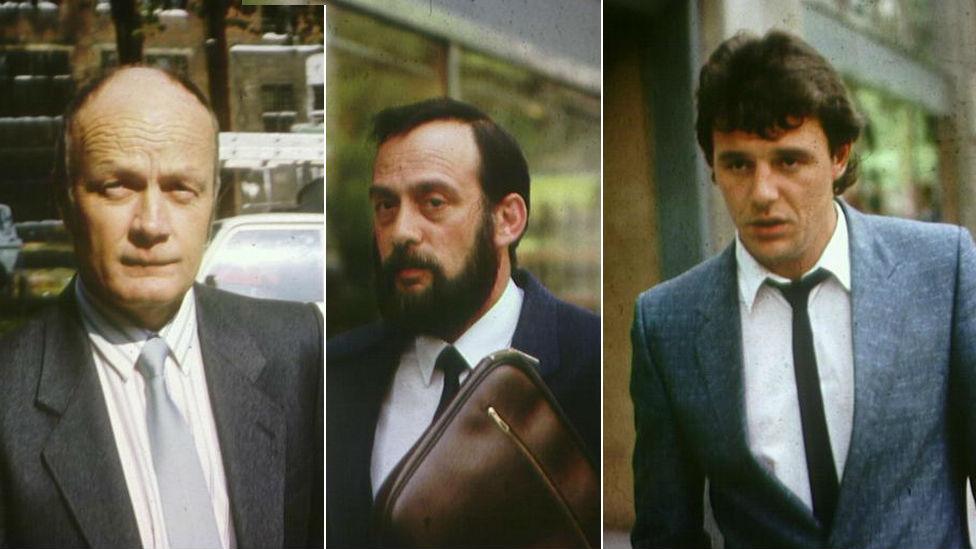
The three named individuals blamed in the official inquiry: Captain David Lewry, Chief Officer Leslie Sabel, Assistant Boatswain Mark Stanley

One young couple who died were Alison and Francis Gaillard. They had been married for less than two years.
Alison's mother, Margaret De Rohan, was in Australia when the Herald tipped over - she had not known her daughter and son-in-law were on board until her husband mentioned they had gone on a day trip to Belgium.
The De Rohans flew home, and Mrs De Rohan said she was convinced she would find her daughter alive in hospital.
"I had the strongest feeling in the world I'd find Alison, and that she'd be so badly injured she wouldn't be able to tell people who she was," she said. "It's an awful thing for a mother to hope, that her daughter would be so badly hurt.
"We went to Belgium, to the hospital. We were told there were 16 unidentified bodies but Ali and Francis weren't among them. My husband insisted on going to the morgue to see for himself. He came back, kissed me on the cheek, and said 'Ali's there. Francis isn't'.
"And all our hopes were dashed. I was right, we'd found her in a hospital. I didn't realise it would be in the morgue. Francis was still on the Herald of Free Enterprise until it was refloated. It took about three and a half weeks before we got his body back. They're buried together in Windsor cemetery.
"You know, they were a young, idealistic couple. If they'd found something they really, really believed in, I could just imagine they'd sacrifice their lives for it. But not this."
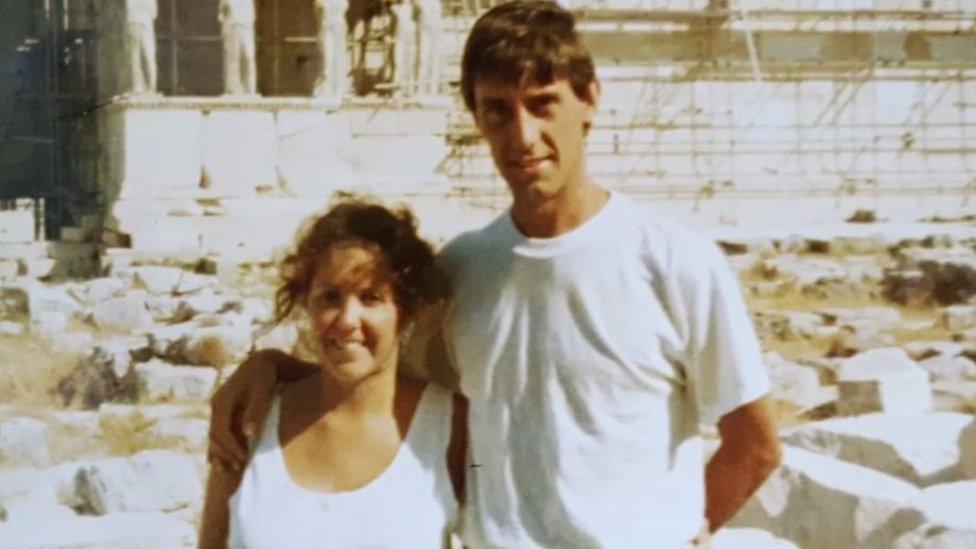
Alison and Francis Gaillard had been married for 18 months when they died
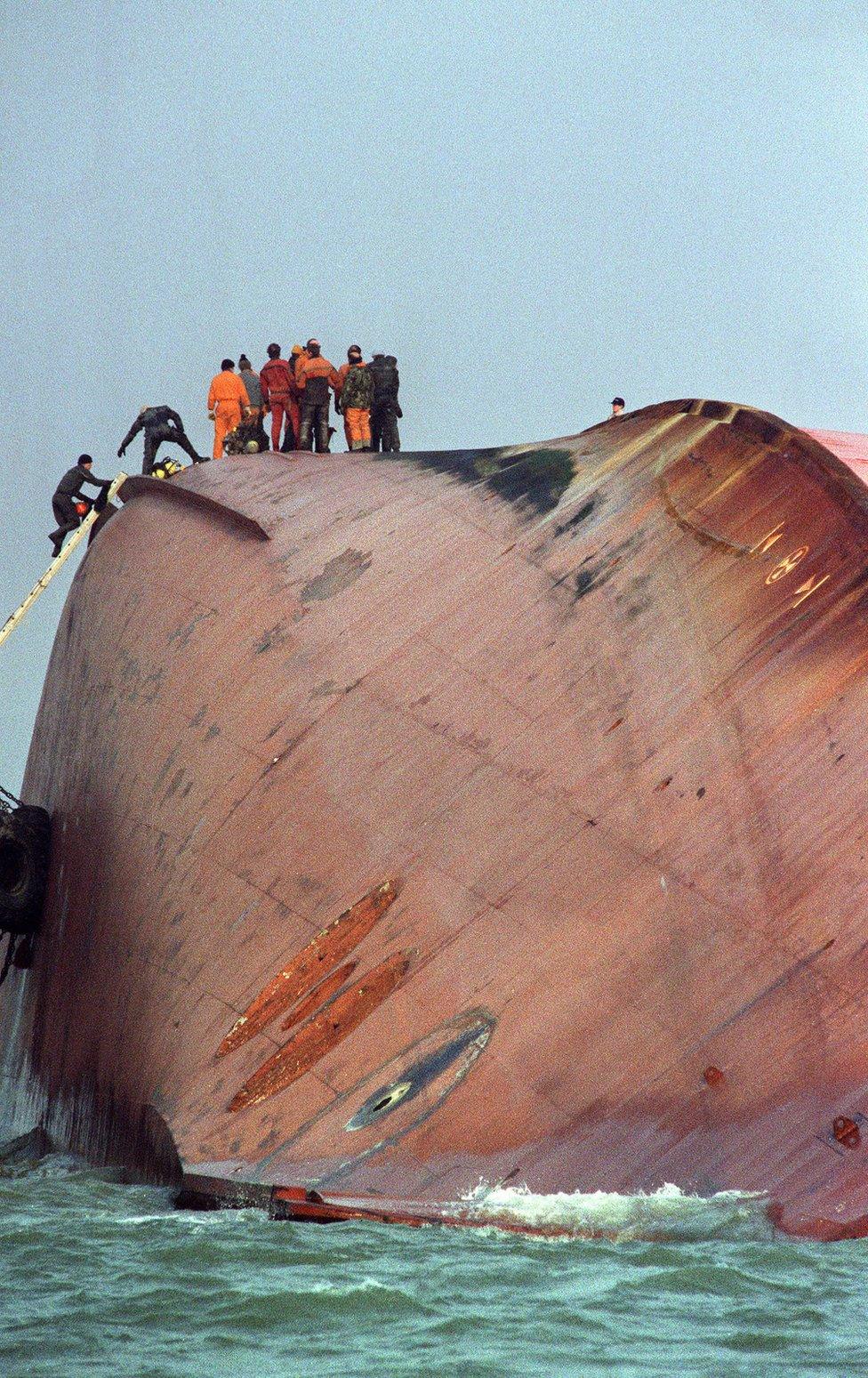
Bill McCrea was chaplain to the Merchant Navy and National Sea Training College and officiated at four of the funerals.
"I was on duty that evening. Several crew members of the Herald were at the college. Gradually, news came through that a British ferry was in trouble. When the men realised it was their ship they became deeply anxious."
He travelled to Dover as soon as he could and spent two weeks in the Seafarers' Centre providing practical and emotional support.
He said the disaster tested his ministry to the limit.
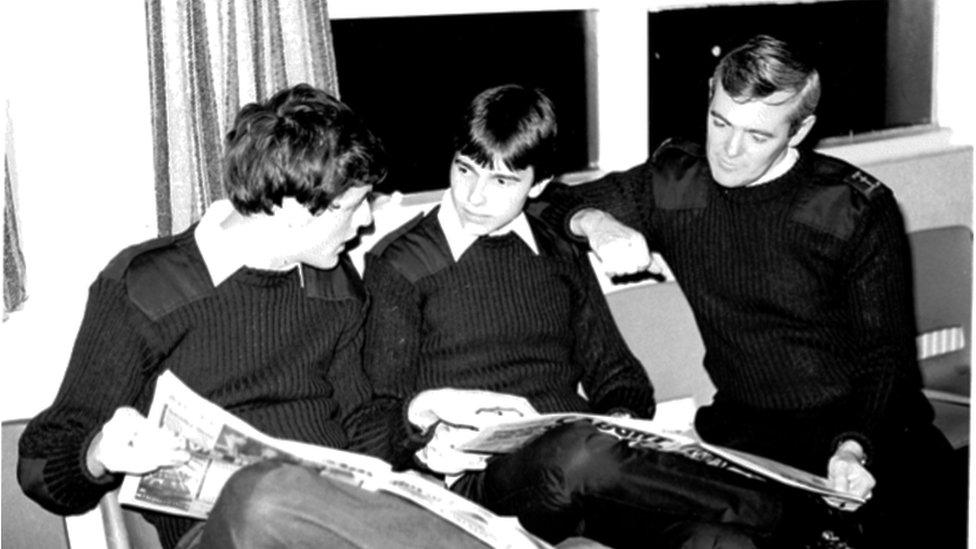
Bill McCrea (far right) during his time at the National Sea Training College in Gravesend
"It was an incredible shock to my system and I was very anxious. I have dealt with individual loss of life with seafarers' families over the years, but so many people lost their lives that night. I wanted to do the right things. Who can train you for that? You depend upon the grace of God.
"I knew some of the men who died very well, including a young fellow who was 17. It was his first posting as a seafarer. He'd only just finished his college course.
"I conducted his funeral service, comforting his family as I, too, struggled to come to terms with the devastating loss. As much as I ministered to his family, they ministered to me too."
Some of the families had to wait a long time for the recovery of their loved ones' bodies.
"One woman had to wait six weeks before they found her husband's body. I gave her all the support I could during that time.
"I also supported passengers who had survived. I met a woman on one of my hospital visits, she lost her husband that night. She told me the only reason she survived was that a truck driver helped keep her awake by pinching her.
"There were a lot of heroic acts that went on that night."
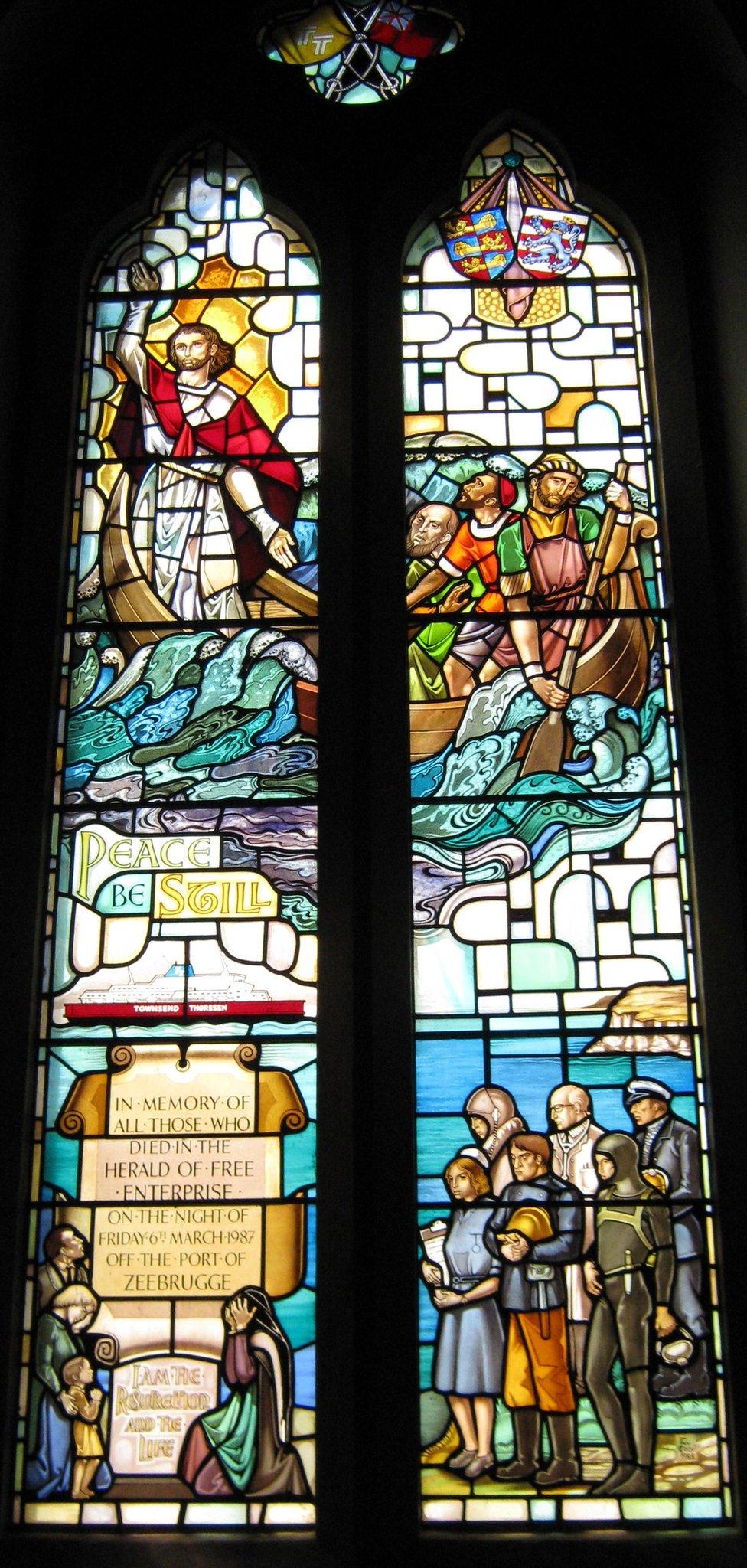
A stained glass window at St Mary's Church in Dover pays tribute to those who died on the Herald of Free Enterprise
- Published6 March 2017
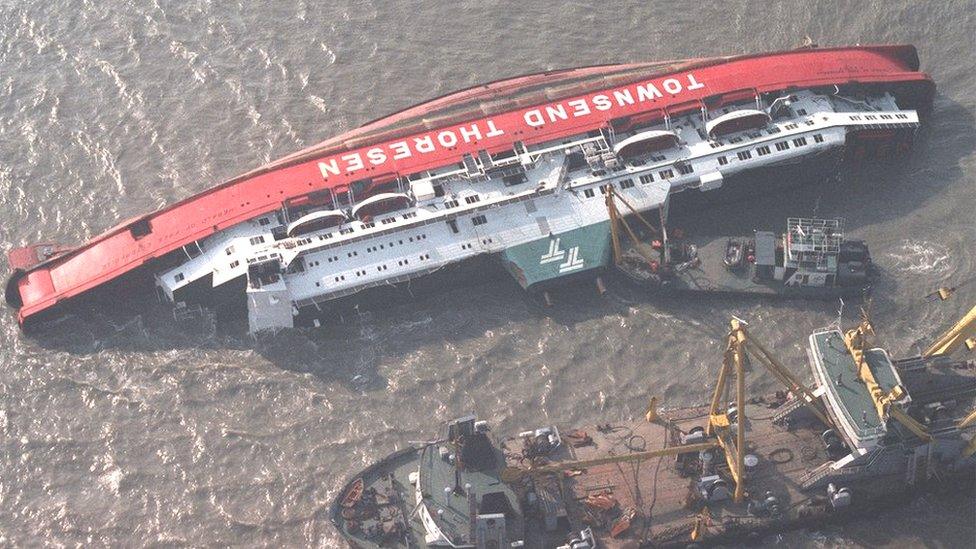
- Published7 March 2012
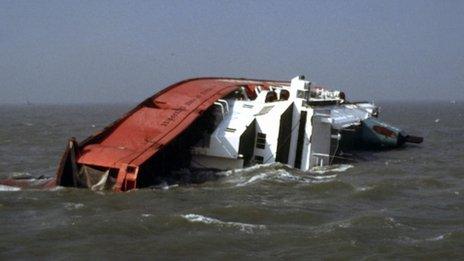
- Published6 March 2012
